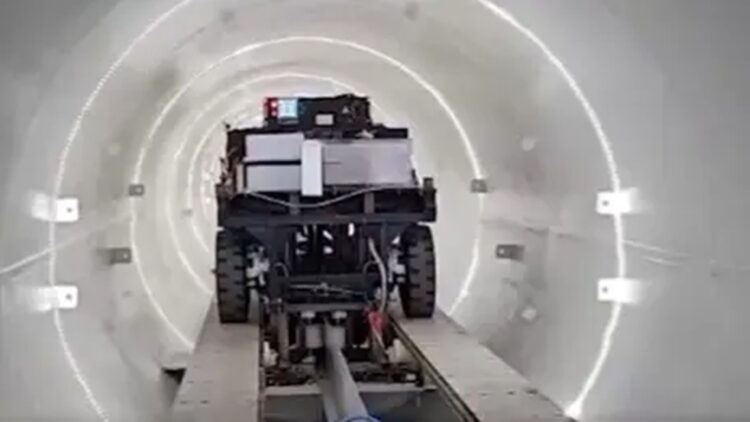In the latest, the Indian Institute of Technology (IIT) Madras has developed India’s first Hyperloop technology in collaboration with the Indian Railways. It’s a transportation system that focuses to revolutionise travel. This government-academia partnership focuses on innovation and pushes the boundaries of what is possible in high-speed transportation.
India’s First Hyperloop ‘Avishkar’
The Hyperloop project at IIT Madras, known as Avishkar Hyperloop, has been at the forefront of this technological advancement. The project focuses to create a high-speed transportation system where passenger pods travel through vacuum tubes at speeds of up to 1,100 km/h. This would reduce travel times, making journeys like Delhi to Jaipur possible in just 30 minutes.
The hyperloop project at @iitmadras; Government-academia collaboration is driving innovation in futuristic transportation. pic.twitter.com/S1r1wirK5o
— Ashwini Vaishnaw (@AshwiniVaishnaw) February 24, 2025
Project Details
The Ministry of Railways supports the project, which has provided financial grants to further the development of Hyperloop technology. The first test track, a 422-meter-long vacuum tube, has been constructed on the IIT Madras campus. This test track will serve as a proving ground for the technology, allowing researchers to conduct trials and refine the system.
Ashwini Vaishnaw Revealed First Look
Union Railway Minister Ashwini Vaishnaw has appreciated the collaboration, stating, “The first pod of 422 meters will go a long way in developing technologies. I think the time has come when, after the first two grants of one million dollars each, the third grant of one million dollars will be given to IIT Madras for further developing the hyperloop project.”. This support underscores the government’s commitment to pioneering future mobility solutions under the Atmanirbhar Bharat initiative.
IIT Madras and Indian Railways Joint Efforts
The Hyperloop project has also got international attention, with experts from several countries exploring potential collaborations and technology exchanges. The recent Global Hyperloop Competition, organised by IIT Madras, saw participation from the leading delegates and researchers from around the world.
This event has strengthened industry-academia collaborations and laid the groundwork for large-scale pilot projects and real-world deployment of Hyperloop systems designed, developed, and deployed in India.
The Hyperloop technology focuses not only to revolutionise transportation but also to be highly energy-efficient and environmentally friendly. The system can achieve high speeds with low power consumption, making it a sustainable solution for future travel.

















Comments